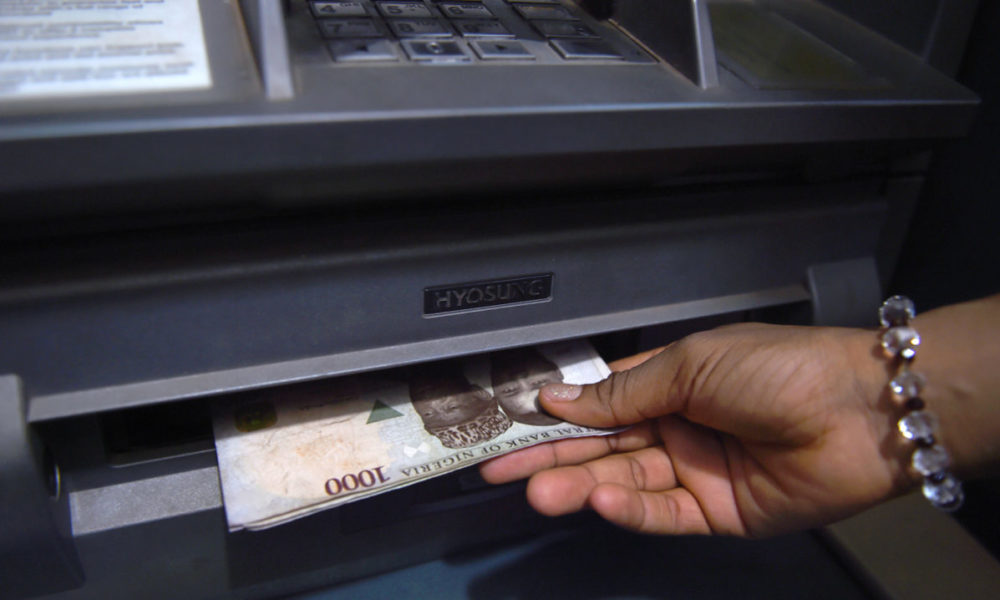Markets
Inflation Fuelling Increased ATM Cash Withdrawal – First Bank

Group Head of e-Buisness FirstBank Nigeria Limited, Mr. Chuma Ezirim provides highlights into trending issues in the electronic payment (e-payment) space as well as the bank’s efforts to encourage customers to embrace cashless transactions.
NIBSS reported that Nigerians withdrew N4.7 trillion through ATMs in 2016.
Why are we will still depending so much on cash despite cashless policy initiatives?
The cashless policy initiative is evolving and work in progress and as such yet to address all of the mass market needs in the market. Also, cash still remains the primary and preferred means of transacting in mass to lower affluent segments of the market.
ATM remains the most popular electronic channel. The structure of the POS Business in the country is still fluid, while the other non-cash payment options like USSD, QR Code, and Web are still emerging.
The dollar exchange rate against the Naira created a burden on the people and a hike in the prices of goods and services in the country (Inflation also increased from 10.4 percent in December 2015 to 18.5 in December 2016). Hence, people needed more cash to buy fewer goods as the value of naira became weak.
Despite increased roll-out of PoS and mobile app, lots of merchants (petrol stations, traders, etc) do not have or offer e-payment channels to customers. What is the challenge of banks in this regards and how is your bank responding to this challenge?
The reasons given above on the slow progress of the cashless initiative, also affect adoption rate by merchants. In the case of POS, the uptake is also hampered by the current POS operating model in the country which makes the business unprofitable to Banks/Acquirers and prevents sizable investment in the channel. In the case of Mobile Apps, the platform is currently not widely adapted to payments. Most of the solutions on typical mobile banking apps are not adapted to payments. However, industry-wide efforts are ongoing to introduce mobile payment solutions such as USSD and contactless payments (QR Codes, NFCs etc.)
Some banks, including FirstBank, in recent times have launched various mobile payment applications. What is the prospect that Nigerians will embrace the culture of using the phones for payment?
Transactions on non-cash payment channels have continued to witness impressive growth in recent past. In the last two years alone transactions on our mobile platforms grew by over 2,300 percent. Also, Nigeria leads other markets in Africa in terms of growth of Mobile penetration. At 40 per cent penetration, and 75 million unique mobile users, Nigeria has huge potentials in this area. It is noteworthy that in similar markets such as Brazil and Kenya, mobile payment is widely accepted and can be said to have been successful.
Besides the roll-out of epayment channels, how is FirstBank encouraging their customers to embrace cashless transactions?
FirstBank has a point- based Loyalty Scheme and Merchant Discount Incentive initiative that reward customers when they make use of non-cash channels for their transactions. We also employ a continuous customer education and campaigns on an ongoing basis.
The world has witnessed upsurge in the rise and use of virtual currencies like Bitcoin, in your view, what should be the appropriate response from the banking industry and the government?
The virtual currencies have a number of advantages such as cost savings and speed, which banks cannot afford to ignore. The profile of an average bank customer has changed over the years. Customers have higher expectations of service and are insisting on how they should be served by their banks. The growth of crypto-currencies over the years shows the level of interest by customers. Central Banks across the globe are actively reviewing the development and CBN has set up a team to review the developments in the Nigeria. Ultimately, banks would eventually play under a well regulated regime to explore opportunities in areas like payments, trade finance, treasury and security, reporting, etc.